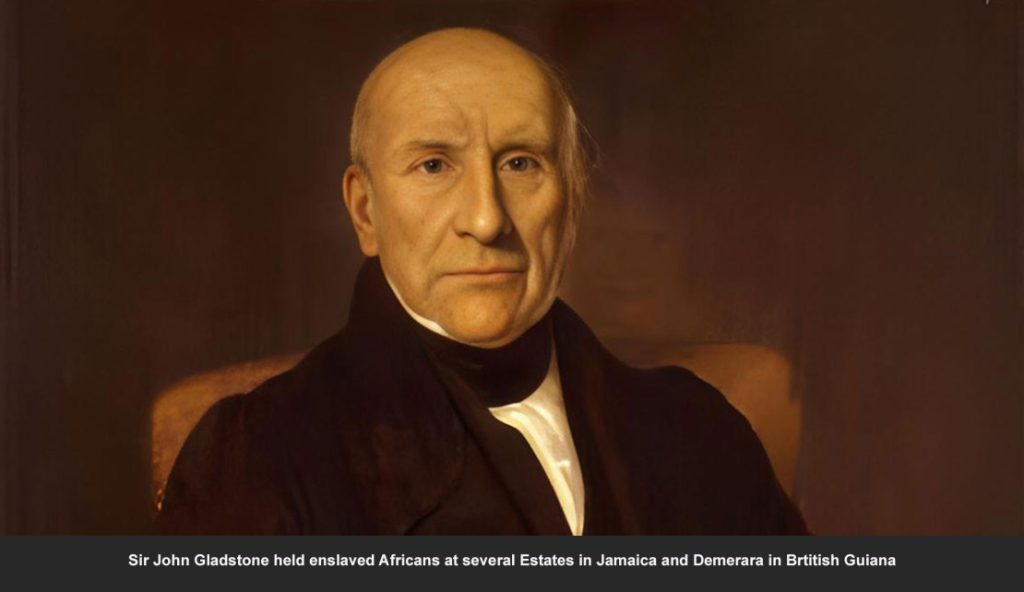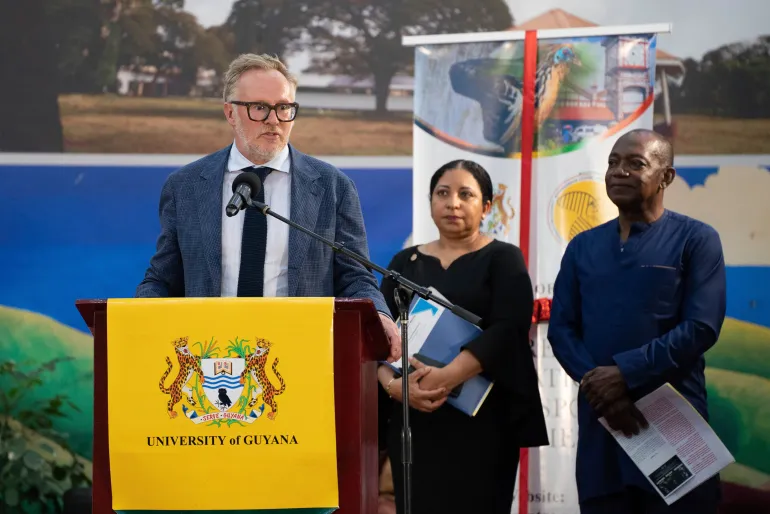The descendants or progeny of the founder (John Gladstone, a Scottish and father of the late British Prime Minister William Ewart Gladstone) of Indian indentured slavery (girmit servitude) in Guyana tendered an apology for his involvement in slavery and indentureship in then British Guiana at a public function last Friday August 25 at the University of Guyana. The apology is the first on Indian indentureship or any other form of indentureship that existed in any part of the globe. It was also the first apology for slavery in Guyana. There were apologies for slavery in the Caribbean and Europe including most recently by the Dutch government but not for indentureship. The Dutch also practiced indentureship in Suriname and several of its other colonies but no organization or individual cornered the Dutch for an apology for the inhumane treatment of indentured Indian laborers.
The Gladstone apology and an event related to it was organized by Dr. Paloma Mohamed, Vice Chancellor of UG, Eric Phillips of the African Slave reparation Commission, and others. No Indian organization was involved in co-organizing the event.
John Gladstone owned slaves and plantations in Guyana and in other Caribbean territories. He introduced Indian indentureship labor (girmitya) to Guiana in 1838 after a successful experiment in Mauritius in 1834. Indentureship, a version of slavery, was introduced by France in 1828 in Reunion Island. It was very profitable for French Plantation owners in Reunion where indentureship existed side by side with slavery including slaves from India and Africa. From Reunion, Indians were taken to several other colonial possessions.
In the Caribbean, John Gladstone received more than 100,000 pounds in compensation for hundreds of Guyanese slaves that were freed in 1834. Portuguese indentured laborers from Madeira Island replaced slave labor but they were not found to be suitable for the kind of work need to grow sugar cane. Two sail ships, the Whitby and Hesperus, that the Gladstone family owned, transported the first batch of indentured Indian laborers (girmityas) to arrive in Guiana on May 5, 1838 – in Berbice and Vreed-en-Hoop in West Demerara. Subsequently, Indian indentureship was introduced in Trinidad in May 1845 and Surinam in June 1873. Several other Caribbean colonies also engaged in Indian indentureship or slavery. The plantation owners and the British government and people benefited from the slave trade and indentureship. France and Holland also benefited from indentureship. Denmark experimented with indentureship but discontinued it after one ship load of indentured laborers. Indentureship in the British territories ended on January 1, 1921 after an act of British Parliament. The indentured Indians were not compensated for the unilateral abrogation of their contracts by the British government or plantation owners. The Indians were forced to work on the plantation as laborers.
At UG on August 25 afternoon, Charles Gladstone, a great grandson and one of six family members that visited Guyana to tender the apology for slavery and indentureship, read from a prepared formal apology on behalf of the extended family of John Gladstone.
The prepared text apologized for the sins of John Gladstone, calling slavery a crime against humanity with lasting negative impacts.
Charles Gladstone read: “It is with deep shame and regret that we acknowledge our ancestors’ involvement in this crime and with heartfelt sincerity, we apologize to the descendants of the enslaved in Guyana. In doing so, we acknowledge slavery’s continuing impact on the daily lives of many. In writing this heartfelt apology, we also acknowledge Sir John Gladstone’s role in bringing indentured laborers to Guyana, and apologize for the clear and manifold injustices of this”.
Guyana President Irfaan Ali on Thursday August 24 on the eve of the apology demanded reparations for slavery. He did not mention indentureship. A commission on Reparations for Slavery was established by CARICOM in 2013 without same for reparations for indentureship and the native indigenous people who were decimated. Then President of Guyana Donald Ramotar and Prime Minister Kamla Persad Bissessar of Trinidad and Tobago did not bring up the issue of reparations for indentureship or the native people. Subsequently, they endorse reparations for indentureship and for the indigent but a decade later no Commission on reparations for Indentureship has been established.
During his remarks, before the apology, Charles Gladstone announced that his family would create a fund for various unnamed projects in the country as part of a “meaningful and long-term relationship between our family and the people of Guyana”.
The apology was welcomed by the descendants of indentured Indians. Some Africans protested the apology. It is the view of Indian rights activists that those who benefited from slavery and indentureship should apologize and engage descendants of both systems of forced labor.

